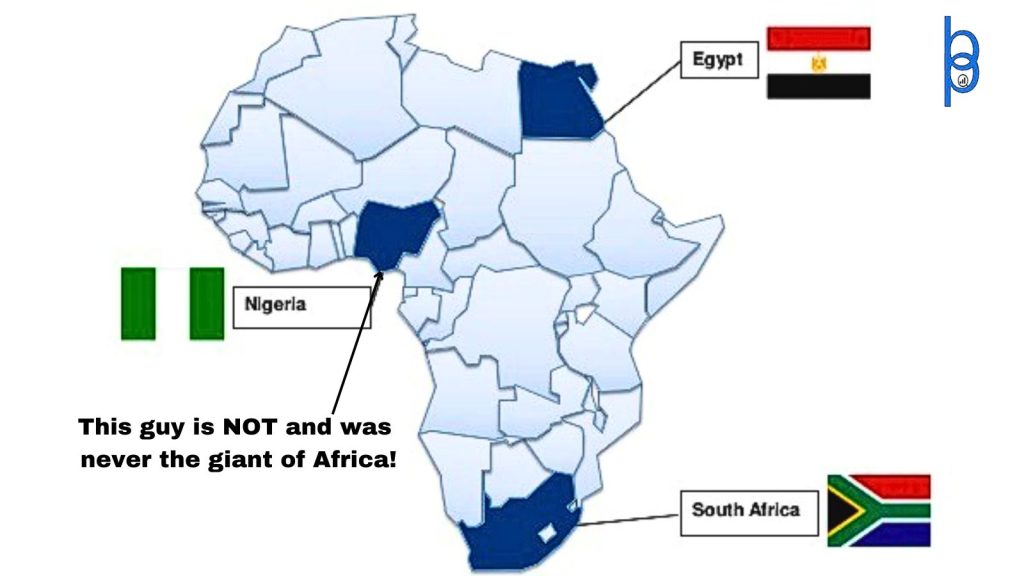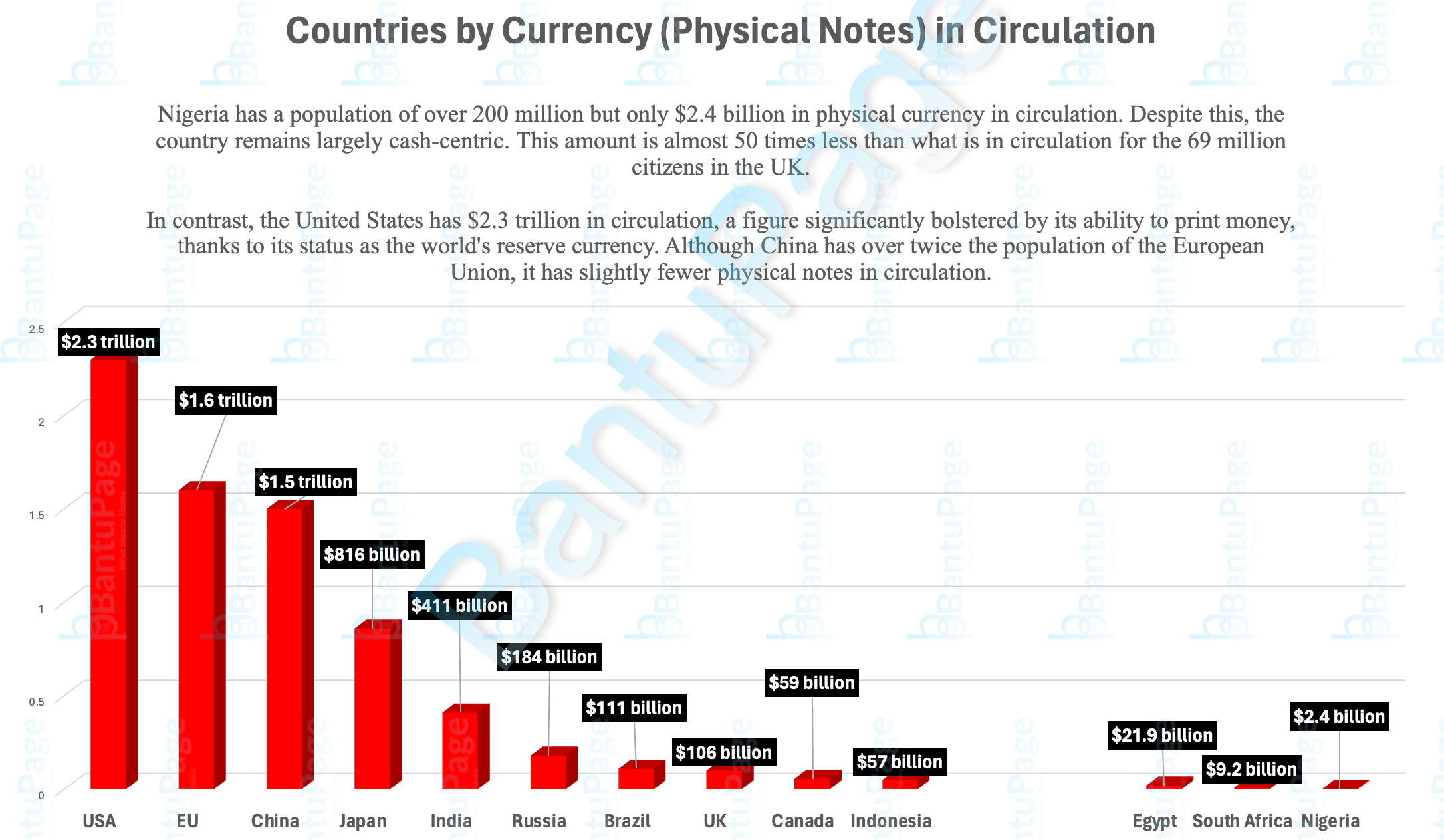
Countries by Currency (Physical Notes) in Circulation
The United Kingdom has over $100 billion in physical currency in circulation despite a population of 69 million. In contrast, Nigeria, with a population of 234 million, only has $2.4 billion in physical notes. South Africa, the richest country in Africa, holds $9.2 billion, which is remarkable given its population is more than three times smaller than Nigeria’s. Meanwhile, Egypt, Africa’s second richest country, possesses over $21 billion in physical currency, significantly exceeding Nigeria’s amount, even though its population is over 100 million less.
The United States leads in currency circulation at the global level, attributed to its unique status as the world’s reserve currency. This allows the U.S. to print more money than any other country without facing significant devaluation or inflation. The European Union and China have the second and third highest currency circulation. Although China has nearly three times the population of the EU, the EU maintains a greater amount of physical currency in circulation. Interestingly, Japan, with a population of 123 million, has more physical currency in circulation than the entirety of 1.5 billion people in Africa.

In Africa, countries such as South Africa, Egypt, Algeria, Morocco, and Tunisia surpass Nigeria in almost every significant metric, including healthcare, infrastructure, GDP per capita, developed road networks, income, research, transparency, life expectancy, internet connectivity, literacy rates, and access to power and water supply, among others. If having a larger population translates to greatness, then India should be considered the giant of the world, not the United States. However, in many cases, a large population can be more of a burden than a benefit. Nigeria has never been the giant of Africa. The self-proclaimed twaddle often touted by Nigerians to assume a position of superiority defies common sense.
By Ikechukwu ORJI





